Ear infections can strike at any age and, while uncomfortable, they often go away on their own. In many cases, doctors will prescribe pain management rather than antibiotics to treat ear infections. This reduces the risk of antibiotic resistance.
If you or someone you know has an ear infection or earache, there are several things you can do to reduce the pain at home. Let's have a closer look.
Types of Ear Infections
There are 3 common types of ear infections; bacterial, viral, and yeast. These infections can arise in three different parts of the ear:
Outer Ear infections (A.K.A Swimmer's Ear):
This is the most common type of ear infection. Swimmer's ear (otitis externa) is normally caused by a bacterial infection in the skin tissue that covers the ear canal.
It's often referred to as 'swimmer's ear' because immersing your ears in water for long periods of time is one of the most common ways to develop an outer ear infection. Another common way to get an infection in the outer ear is by injuring the ear canal with cotton swabs or other objects.
Infections of the outer ear can often be treated at home. The most important step is to avoid getting water in the ear canal until the infection has cleared up. Swimmer's ear normally goes away on its own within a couple of days and the pain should have completely subsided within a week. Swimming in warmer water makes you more susceptible to an outer ear infection.
Middle Ear Infections

Most middle ear infections are caused by viruses or the common cold and will clear up on their own. However, bacterial infections can also lead to middle ear infections and may require a course of antibiotics to treat. A middle ear infection (otitis media) occurs when an infection develops behind the eardrum.
Studies show that middle ear infections are caused by viruses. Generally, a viral type of middle ear infection clears up by itself within 2 or 3 days. Doctors tend not to prescribe antibiotics for mild middle ear infections, but rather pain management while the immune system fights the infection naturally. In the case of a severe infection of the middle ear, medical assistance may be required.
Inner Ear Infections
Inner ear infections are the rarest type of ear infection. Typically caused by a virus, inner ear infections cause inflammation of the inner ear (labyrinthitis). When the structures of the inner ear are inflamed, this can affect the patient's balance and hearing. Common symptoms include ringing in the ears (tinnitus), dizziness, and trouble balancing, (vertigo). Inner ear infections are more common in adults and normally require medical treatment.
Inner ear infections typically need medical attention. You may have to consult an otolaryngologist who specializes in ear, nose, and throat conditions.
How to Tell if You Have an Ear Infection
If you're not sure if you have an ear infection, look out for these common signs and symptoms:
Outer and Middle Ear Infections: Common Signs & Symptoms
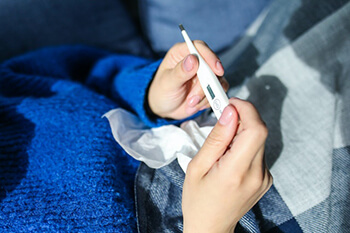
- Difficulty hearing
- Itchiness around the ear
- Mild to severe earache
- Inflammation and redness of the ear
- Fluid such as pus oozing from the ear
Middle and Inner Ear Infections: Common Signs & Symptoms
- A fever
- Vertigo (dizziness, nausea, vomiting, loss of balance)
- Ringing in the ear (tinnitus)
- Inflammation of the inner ear (labyrinthitis)
- A feeling that the ear is full
Home Remedies for Ear Infections
If you are suffering from ear pain as the result of an ear infection, there are some home remedies that you can help to soothe ear pain. Here are some of the most common remedies to treat ear infections:
1. Cold or Warm Compresses
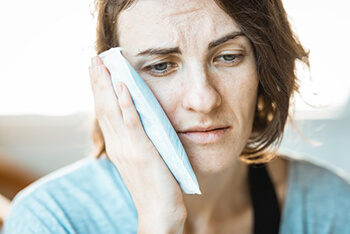
Warm and cold compresses, such as an ice or heat pack, can ease ear pain. For warm compresses, you can use a heating pad or a damp cloth that has been soaked in warm water. Make sure the heating pad is warm, never hot. For cool compresses, place an ice pack or a cloth soaked in cold water on the affected ear.
You can try both temperatures to see which helps more or alternate between a warm compress and a cold one every 10 minutes. Keep the compress on the ear until the pain subsides or the compress returns to room temperature.
2. Over-the-Counter or Naturopathic Ear Drops
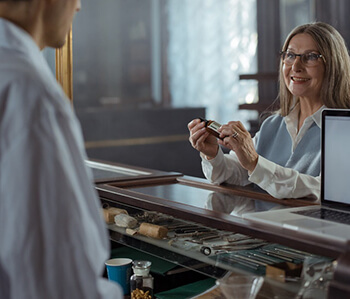
OTC medications such as ear drops can relieve earache for a while. Simply pour a few drops into the affected ear, following the instructions on the packet. However, if you have existing ear conditions such as a hole or tear, it's best to consult a doctor first.
3. Chew Gum
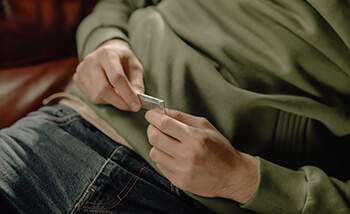
Ear pain can be caused by a change in ear pressure. If you develop earache while flying or driving at high altitudes, try chewing gum. Chewing gum or sucking on hard candy can reduce the pressure build-up in the ear, relieving pain.
4. Sleep Upright
Your sleep position can exacerbate earache. Lying flat can cause fluid to build in the ear. Changing your position to a more upright one encourages fluid to drain from the ear, reducing the pressure.
Try propping yourself up with some pillows or resting in a reclined armchair and sleep with the infected ear raised, rather than against the pillow to encourage better draining.
5. Warm Olive Oil

If you are suffering from earache thanks to a middle ear infection, warm olive oil or vegetable oil can help. Olive oil is a folk remedy, and while there is little solid evidence that it works, medical experts agree that putting a few drops of warm olive oil in the ear is safe and moderately effective.
To avoid burning the eardrum, ensure the oil is no warmer than your body temperature. Using an ear dropper, gently drip the warm oil into the infected ear canal and hold it in place using a cotton ball. While this offers pain relief for middle ear infections, it isn't usually very effective for outer ear infections (swimmer's ear).
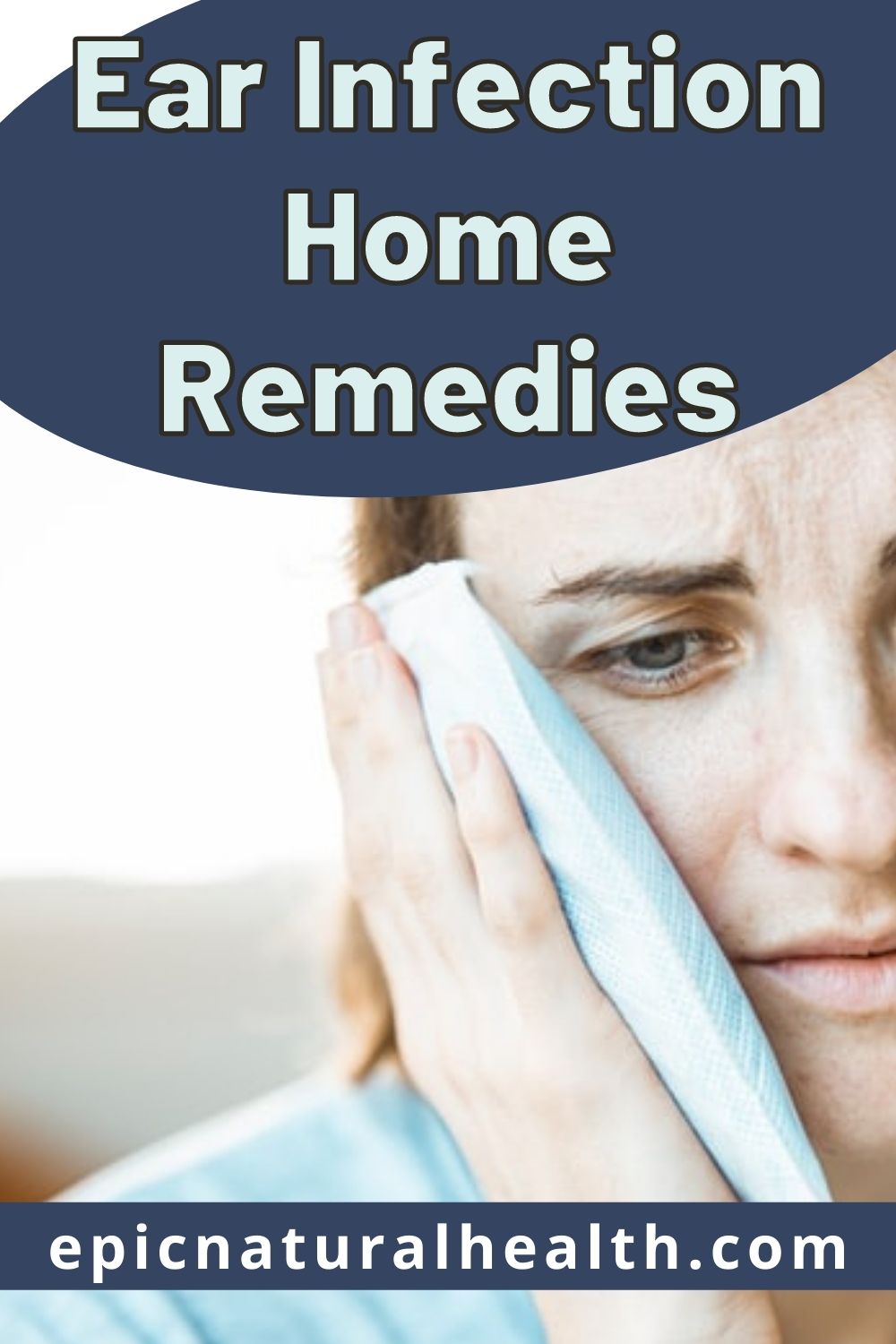
6. Ginger Oil or Juice
Ginger is packed full of natural anti-inflammatory properties that relieve the pain caused by an ear infection. For this folk remedy, you can use ginger juice, or you can heat oil with ginger and strain to make a ginger oil.
There are several ways to use ginger for earache, but the most important thing to remember is never to pour ginger oil directly into the ear canal. Instead, apply ginger juice or warm ginger oil to the outer ear canal (pinna).
7. Garlic
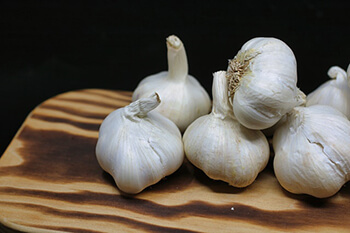
Garlic is another powerful home remedy. Garlic is a natural antibiotic and pain reliever, making it an effective treatment for outer and middle ear infections.
To use, first make garlic oil. You can do this by soaking crushed garlic in warm oil (such as olive or sesame) for a couple of minutes. Next, strain the garlic and gently pour the oil into the ear canal.
8. Myringotomy
Before antibiotics, doctors used a natural procedure known as myringotomy to treat infections of the middle ear. The treatment involves making a small incision in the eardrum to lower pressure and drain fluid from the ear. This natural treatment is still used by medical professionals to treat rare bacterial infections in newborns, young children, and immune-compromised patients.
9. Chiropractic Treatment
Chiropractic treatment may help to treat and even cure infections of the middle ear. While there haven't been any long-term clinical studies that link chiropractic treatment with a reduction in earache, a 1996 study found that 93% of the child participants reported an improvement in ear pain after chiropractic adjustments. Opinion remains divided on this natural remedy, but your routine trip to the chiropractor could just soothe that pesky ear infection.
10. Neck Exercises

Your earache could be caused by pressure in the ear canal. Neck exercises, particularly neck rotation exercises, can help to reduce pressure and relieve ear pain. If you have a neck injury or a stiff neck, seek professional medical advice before doing neck exercises. Try the neck rotation exercises below:
- Place both feet flat on the ground and sit up straight
- Gently rotate the neck to the right until your head is parallel to your right shoulder
- Now slowly rotate the neck to the left, until the head is parallel to the left shoulder
- Slowly raise your shoulders towards your ears
- Hold each stretch for the count of five
- Repeat throughout the day
11. Hydrogen Peroxide
Another common natural remedy for earache and infections is hydrogen peroxide. Simply place a few drops of neat hydrogen peroxide into the infected ear and let it sit for a few minutes. Finally, drain the liquid into a sink and rinse your ear well with distilled water.
12. Good Old-Fashioned Distraction
Distraction can take your mind off the pain from an ear infection. Try watching a movie, reading a book, or anything else that will stop you from thinking about the earache.
13. OTC Pain Relief
If you are suffering from severe pain, you may need to take some pain killers such as acetaminophen, ibuprofen, or naproxen. For infections in the middle or inner ear, a medical professional may prescribe nonsteroidal anti-inflammatory drugs to reduce inflammation and other symptoms.
When to Call a Doctor
Ear pain caused by a mild ear infection will usually get better within 2 or 3 days on its own or by using ear infection home remedies. However, if the symptoms remain longer than 48 hours and you notice any of the signs below, it is time to call your doctor.
Call your doctor if you:
- Have a high fever
- Feel dizzy
- Have a severe headache
- Think there could be an object stuck in your ear
- See blood, pus, or any other fluid leaking from the affected ear
- Notice swelling behind your ear (especially if that side of your face feels weak or you're unable to move it)
- Suffered from severe earache that stops all of a sudden (this may indicate a ruptured eardrum)
Final Thoughts
Not all ear infections require antibiotics. In fact, most ear infections will clear up on their own within a week or two. Natural remedies can soothe ear pain and relieve the symptoms while your body fights the infection. Relying too heavily on prescription drugs such as antibiotics can leave us at higher risk of antibiotic-resistant infections, making natural remedies a great alternative. If you're unsure, speak to a medical professional to see if you require a natural remedy or medical attention.

